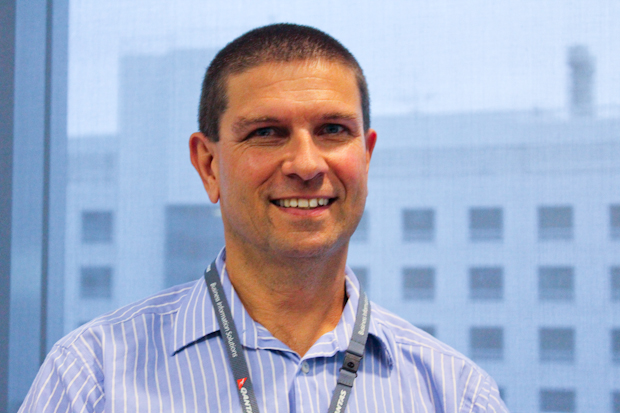Optus integration a cinch for Qantas

Qantas' head of loyalty IT, David Glover, said that integrating Optus into the Frequent Flyer program would be more challenging for the telco than it would for the airline in terms of IT.

David Glover, Qantas Frequent Flyer's head of Loyalty IT. (Credit: Luke Hopewell/ZDNet Australia)
"[Getting the two systems talking] may seem complex, but we've obviously built interfaces with a vast number of partners today, and we try to re-use the model as much as we can so we'll be leveraging what we've done before. We don't see anything hugely complicated. That's from our side; I think Optus have a bit of work because they've now got to capture member numbers," he said in an interview with ZDNet Australia.
"Optus in terms of just creating a field within their products that's going to identify and capture a member numbers and get that from their customers, there's quite a bit of work going in to make that happen," he added.
Glover said that, on the Qantas side, a recent move away from a 23-year old Fortran-based customer loyalty platform to an Oracle platform has made integrating new partners, like the massive Woolworths and Optus partnerships, is easy for the airline.
"Replacement of the old systems puts us in a position where we're no longer limited or hindered by our technology," he said.
Qantas went to tender for a year for the new platform, finally selecting Oracle's Siebel Loyalty Management platform for its almost eight million members.
Simon Hickey, CEO of Qantas Frequent Flyer, said that the ancient Fortran system was inflexible and held the loyalty program back.
Simon Hickey, CEO of Qantas Frequent Flyer. (Credit: Luke Hopewell/ZDNet Australia)
"Fortran is a very stable platform, but you can't then change much. It's more expensive to run, harder to get people who cut code in it anymore and everything takes longer and is more difficult than it should be," Hickey said.
"That's where Siebel comes in, so when we want to bring in a new partner or want to do the things we want to do with the business going forward, it's built to be that more open."
In more recent times, Qantas has been hit by rising fuel prices and ongoing industrial action, which CEO Alan Joyce has identified as some of the greatest threats to the survival of the airline. Glover said, however, that even when times are tough at Qantas, IT programs like Next Generation Check In and the Oracle migration are still given priority.
"We look to cut expenditure elsewhere, but technology is the foundation of the airline and for the loyalty, at least, the Frequent Flyer technology is fundamental to our operations," he said.
"We've got other plans on the horizon."
(Front page image credit: Qantas B737-800 VH-VXU image by Andy Mitchell, CC BY SA 2.0)